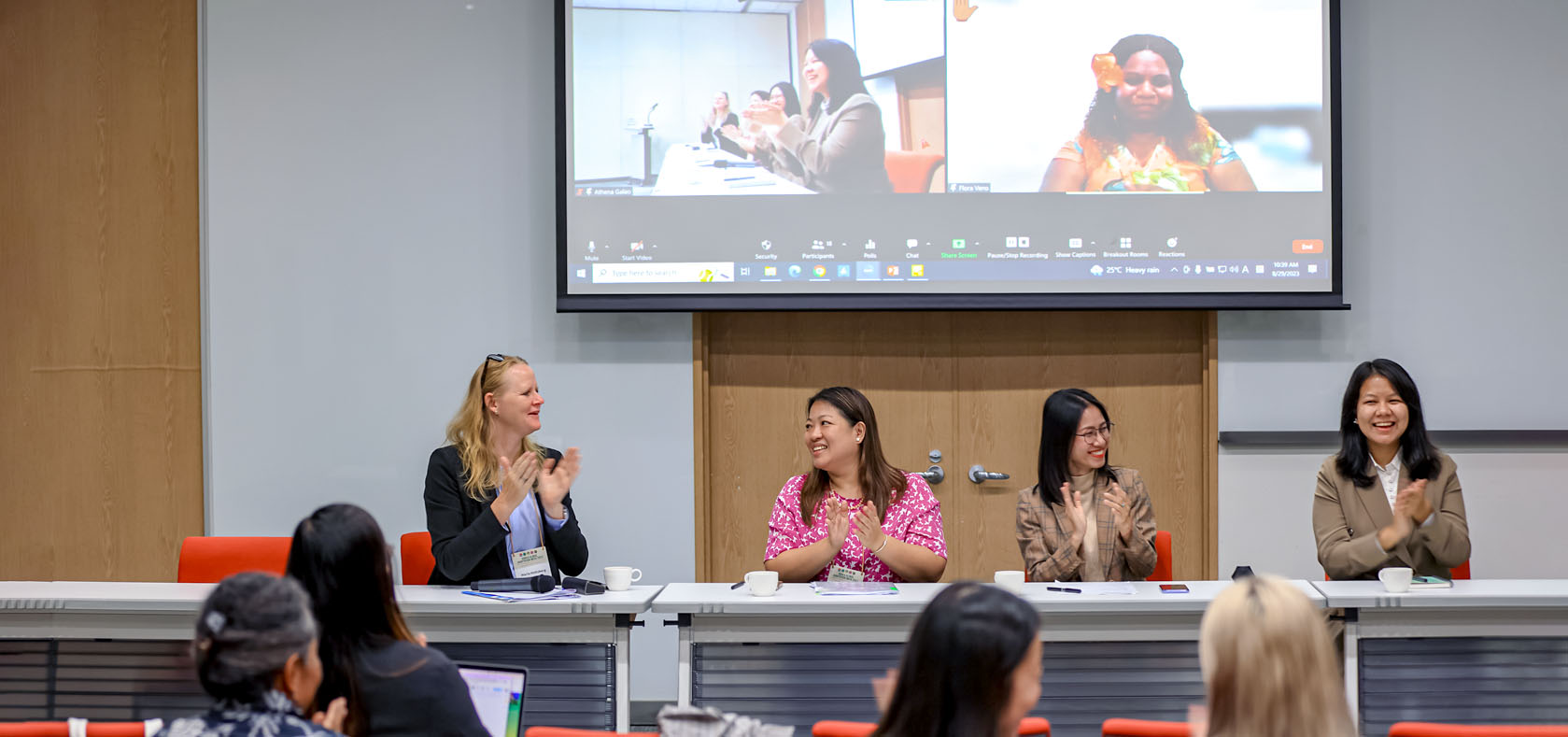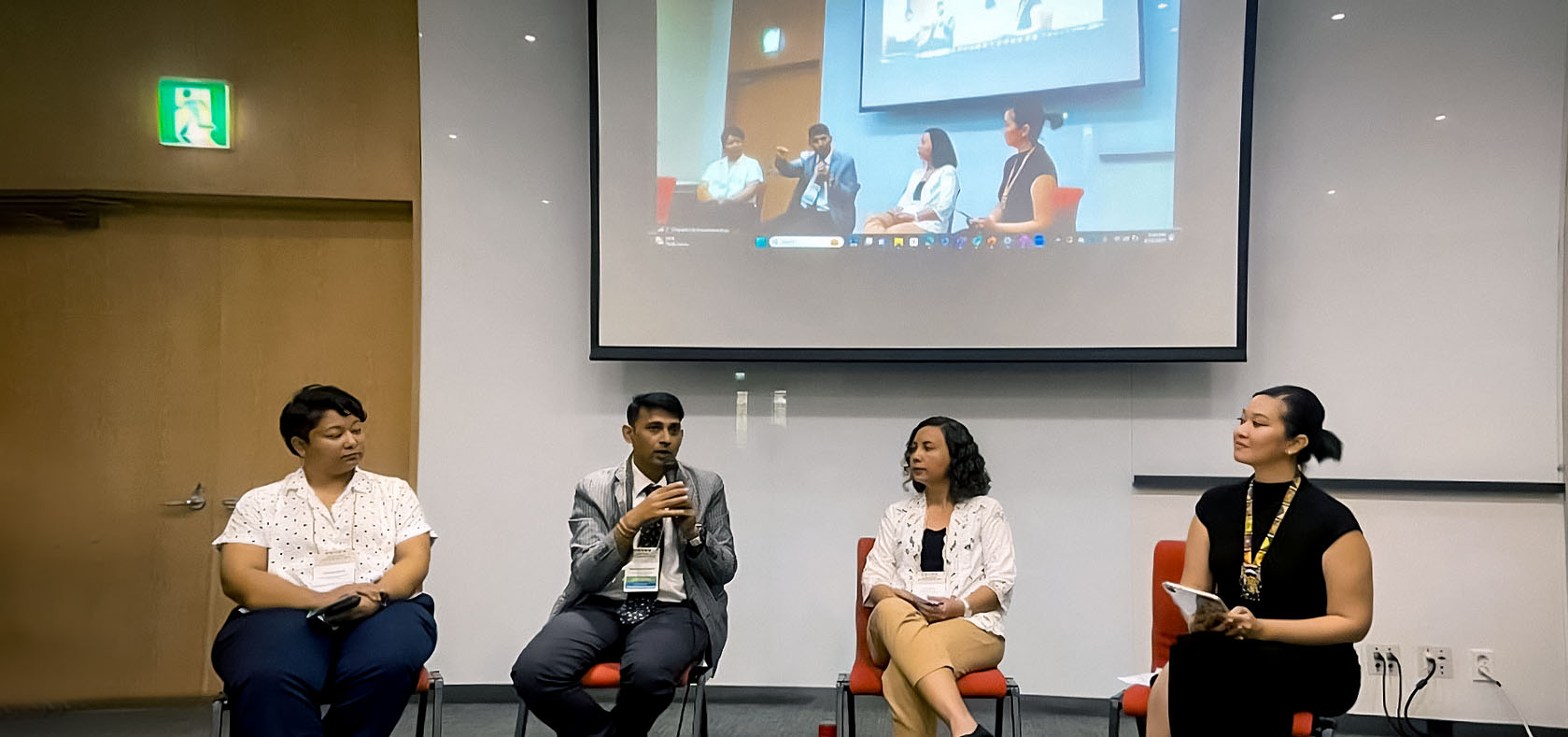Women's Leadership in Climate Action Takes Spotlight at the 8th APAN Forum
Date:
Bangkok, Thailand — UN Women and the UN Environment Programme (UNEP) carved out a prominent space for women's leadership to flourish at the 8th Asia-Pacific Climate Change Adaptation (APAN) Forum.
The APAN Forum, hosted within the UNEP Regional Office for Asia and the Pacific, is a regional platform for climate adaptation practitioners and policymakers to exchange knowledge and collaborate towards actionable solutions that are needed to address the challenges of climate change.
During this year’s forum, held in the Republic of Korea from 28 August to 1 September, UN Women and UNEP organized two sessions that underlined the indispensable contributions of women in fostering climate resilience and driving inclusive solutions across the Asia-Pacific region.
“Intense wildfires, coral bleaching, record-breaking heatwaves and deadly floods and storms have accelerated and intensified into interlinked crises that affect us all,” said Sabra Noordeen, Special Envoy on Climate Change from the Republic of Maldives.
“Many have lost their lives, their homes and their future. These impacts are not felt equally. Everywhere, women and girls face the greatest threats and the deepest harm,” Noordeen emphasized as she opened the pre-forum session “Feminist action for climate justice: An enabler to building resilience of communities.”
To address the uneven impacts of climate change, representatives from the Government of the Philippines, ActionAid Vanuatu and UN Women’s 30 for 2030 Youth Network members shared their experiences and practical solutions for women, by women.

Flora Vano, Country Programme Manager at ActionAid Vanuatu, highlighted the importance of passing down traditional knowledge to future generations and to “have affordable, accessible technology for women and communities so they can be a part of the global agenda.”
Sharing her vision of what a climate-resilient community looks like, she also drew attention to “invest in women-led organizations so that the transformation begins from the roots.”
Sanjana Chhantyal, a member of the 30 for 2030 Network from Nepal, emphasized that “all the stakeholders need to make inclusive, intentional and intergenerational efforts to ensure that gender equality is embedded in all the industries and across all levels.”
Meanwhile, the second session organized during the main forum focused on mainstreaming gender, disability as well as indigenous and local knowledge systems for more inclusive climate action.
Co-organized with the Institute for Global Environment Strategies (IGES) and Arbeiter-Samariter Bund (ASB), panellists from both organizations, as well as the World Association of Community Radio Broadcasters - Asia Pacific (AMARC-AP), Disability-Inclusive Disaster Risk Reduction Network (DiDRRN), Women Organizing for Change in Agriculture and Natural Resource Management (WOCAN) and ASEAN Secretariat, shared their perspectives on ensuring that climate action leaves no one behind.

Chrysant Lily Kusumowardoyo, Country Director at the Disability-inclusive Disaster Risk Reduction Network, said a Climate Action Network South Asia study found that millions of people in Nepal will migrate due to climate disasters.
“What we found in our study is that it is actually men who can afford to do so. Women with disabilities and women from lower castes are left behind,” she added. She also called for everyone to think about how we can integrate their perspectives in strategies and plans for a more inclusive climate action.
Recommendations from the sessions were taken forward to the APAN Forum Recommendations that will expand climate adaptation efforts in the Asia-Pacific region and guide contributions to the Conference of the Parties (COP) and other initiatives.
This initiative is part of the EmPower: Women for Climate-Resilient Societies (EmPower) programme. Jointly implemented by UN Women and UNEP with support from the Government of Sweden, EmPower is dedicated to empowering women and other marginalized and vulnerable communities to take the lead in building resilient communities.
Athena Galao
Programme Coordinator at UN Women Asia and the Pacific.
E: [ Click to reveal ]
Annette Wallgren
Programme Management Officer at UNEP Asia and the Pacific.
E: [ Click to reveal ]